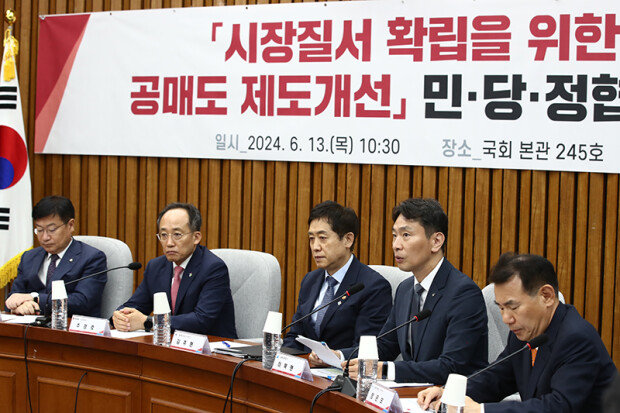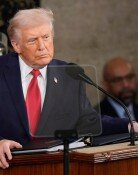Korea bans short stock selling by next March
Korea bans short stock selling by next March
Posted June. 15, 2024 08:39,
Updated June. 15, 2024 08:40

The South Korean government and the People Power Party have decided to extend the ban on short stock selling by the end of March next year. The decision was made to maintain the ban until fixing the current short selling system, which is only favorable to foreign and institutional investors and building an electronic system to prevent illegal short selling. With the decision in place, the ban, which was placed in November last year, will be maintained for 16 months at the minimum.
Short selling is an investment technique of borrowing and selling a security whose price is expected to fall and later repurchasing the same stock when the price is lower to make profits. Some advanced countries temporarily banned short selling during the global financial crisis. However, there is no precedence where one of the ten largest economies in the world, like South Korea, banned it for over a year when there was no national crisis. The South Korean ruling party banned short selling for eight months when illegal short selling by some foreign-based investment banks was identified last year.
However, short selling has many benefits, such as controlling the prices of overly-hyped stock and finding appropriate prices for them. This is why short selling is one of the key conditions for the designation as a developed market index by Morgan Stanley Capital International (MSCI), which is what the South Korean government has been trying to achieve. MSCI changed the South Korean stock market’s access to short selling from positive to negative last week. It is a signal that the South Korean stock index’s designation as a development market index is unlikely if the ban continues to be enforced. Foreign capital inflow expected from the designation, which is estimated to be tens of trillions of won, has become an empty prayer.
The current situation is because the ruling party politicized short selling to appeal to 14 million independent traders. After the governor of the Financial Supervisory Service mentioned at the end of last month a partial resumption of short selling in June, the presidential office denied it by saying that it was only a personal hope of the governor. South Korean President Yook Suk Yeol said in June that he had no intention to resume short selling unless sure measures to prevent related side effects are put in place, which was viewed in the stock market as a statement targeting the April 10 general elections.
Currently, South Korea and Turkey are the only OECD member countries that have a ban on short selling. The South Korean stock market’s poor performance while the stock markets of major countries are renewing their highest records day after day is partially due to the ban on short selling. Revision of the system that is unfavorable to independent traders or monitors illegal activities is necessary. However, the ruling party’s extension of the ban to appeal to independent traders is not helpful to either the South Korean stock market's value-up or independent traders' asset increase.






![‘부화방탕 대명사’ 북한 2인자 최룡해의 퇴장 [주성하의 ‘北토크’]](https://dimg.donga.com/c/138/175/90/1/wps/NEWS/IMAGE/2026/02/27/133414028.1.jpg)
